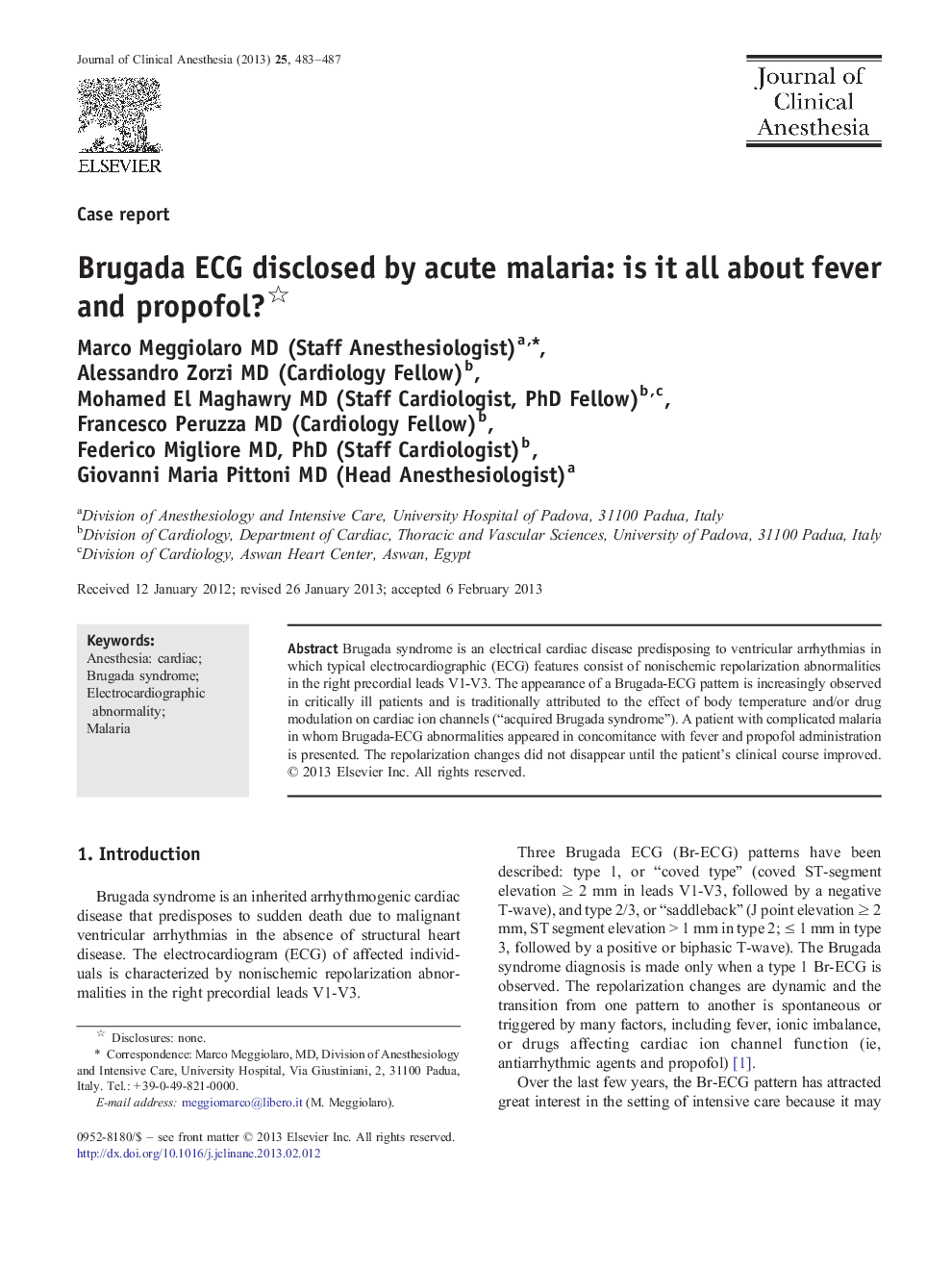| Article ID | Journal | Published Year | Pages | File Type |
|---|---|---|---|---|
| 2762751 | Journal of Clinical Anesthesia | 2013 | 5 Pages |
Abstract
Brugada syndrome is an electrical cardiac disease predisposing to ventricular arrhythmias in which typical electrocardiographic (ECG) features consist of nonischemic repolarization abnormalities in the right precordial leads V1-V3. The appearance of a Brugada-ECG pattern is increasingly observed in critically ill patients and is traditionally attributed to the effect of body temperature and/or drug modulation on cardiac ion channels (“acquired Brugada syndrome”). A patient with complicated malaria in whom Brugada-ECG abnormalities appeared in concomitance with fever and propofol administration is presented. The repolarization changes did not disappear until the patient's clinical course improved.
Keywords
Related Topics
Health Sciences
Medicine and Dentistry
Anesthesiology and Pain Medicine
Authors
Marco (Staff Anesthesiologist), Alessandro (Cardiology Fellow), Mohamed (Staff Cardiologist, PhD Fellow), Francesco (Cardiology Fellow), Federico (Staff Cardiologist), Giovanni Maria (Head Anesthesiologist),
